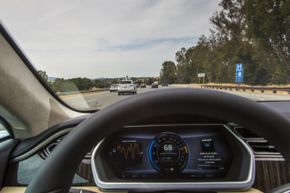Renegade artificial intelligences, big brother security states, cars trying to kill us -- it's not like we weren't warned. But, true to form, like some Frankensteinian dupe from the cheesiest of sci-fi/horror flicks, we just had to build it anyway. Was it hubris? Blind devotion to the gods of gadgetry? Or did we just figure that the fallout would be somebody else's problem?
The Internet of Things: Trillions of everyday objects exchanging data, everywhere, all the time, with only the most basic human oversight. It's already arrived in devices, sensors, controllers, big data tools and cloud infrastructure, but that's just the tip of the iceberg.
Advertisement
"Today less than 1 percent of things in the physical world are connected," says Cisco chief futurist Dave Evans in an explanatory video. Tomorrow, an online world stretching from your kitchen blender to the factory floor to the satellites overhead will open security vulnerabilities on an unprecedented scale and grant systemic malfunctions extraordinary -- and terrifying -- reach.
It seemed like a good idea at the time.
Well, the check's just come due, metaphorically speaking, and you're still making payments on that all-singing, all-dancing washer and dryer. The good news? Making that payment schedule is about to become the least of your worries. The bad news? Well, that's what this article is about.










